Summary
- September 5 focuses on the 1972 Munich Olympics hostage crisis, filmed from the ABC Sports perspective.
- In this interview with Collider's Steve Weintraub, Peter Sarsgaard and Ben Chaplin had unique material to research for their roles in the movie.
- The complexity of broadcasting tragedies live on TV is a key theme of the film, prompting ethical discussions.
Always playing provocative, captivating roles, Peter Sarsgaard and Ben Chaplin are character actors to be admired. While they have won audiences over with performances in massive films like The Batman and Disney’s Cinderella, respectively, both are also world-renowned stage actors. Saarsgard made his Broadway debut in Chekov’s The Seagull, and Chaplin has been tearing up London’s West End for decades in plays like The Glass Menagerie. Now, Sarsgaard and Chaplin are bringing an intimate, collaborative style of performance to their latest character-driven ensemble piece, September 5.
Directed and co-written by Tim Fehlbaum (The Colony), September 5 depicts and recounts the events of the heartbreaking 1972 Munich Olympic hostage crisis. This film is filmed wholly from the perspective of the ABC Sports crew’s coverage of the internationally traumatic events. In the film, Sarsgaard portrays Roone Arledge, the creator of modern sports entertainment. Chaplin portrays Marvin Bader, the VP of Olympic operations during the emergency. The film co-stars John Magaro (Past Lives) and Leonie Benesch (The Crown).
Collider’s own Steve Weintraub had the pleasure of sitting with Sarsgaard and Chaplin to discuss their characters and the events of September 5. Together, they discuss their director’s utter dedication to the smallest details, how they researched the very real lives of the men they portray, and ultimately, how news folks responded to the team’s expert execution.
‘September 5’ Wasn’t Easy to Understand From the Script
COLLIDER: I really want to say this is a fantastic movie. I'm sure for both of you, you've read a lot of scripts. You get handed this script, you see what's on the page, you see how good it is. How much did you actually pay to be in the movie?
BEN CHAPLIN: More than I got paid. [Laughs]
PETER SARSGAARD: I read the script, but it was hard to tell from the script that it's gonna have doc footage in it, and a lot of it is technical jargon. It's not easy to understand from the script that it's going to be this movie. What makes it easier is when you meet Tim, who is so compulsive about verisimilitude. Down to the walkie or the shaver you're going to use, and having the fax machine work. I thought that was super important for this story. It's really about trying to get the story straight.
What Happened On ‘September 5’?
“What if someone is killed on television?”
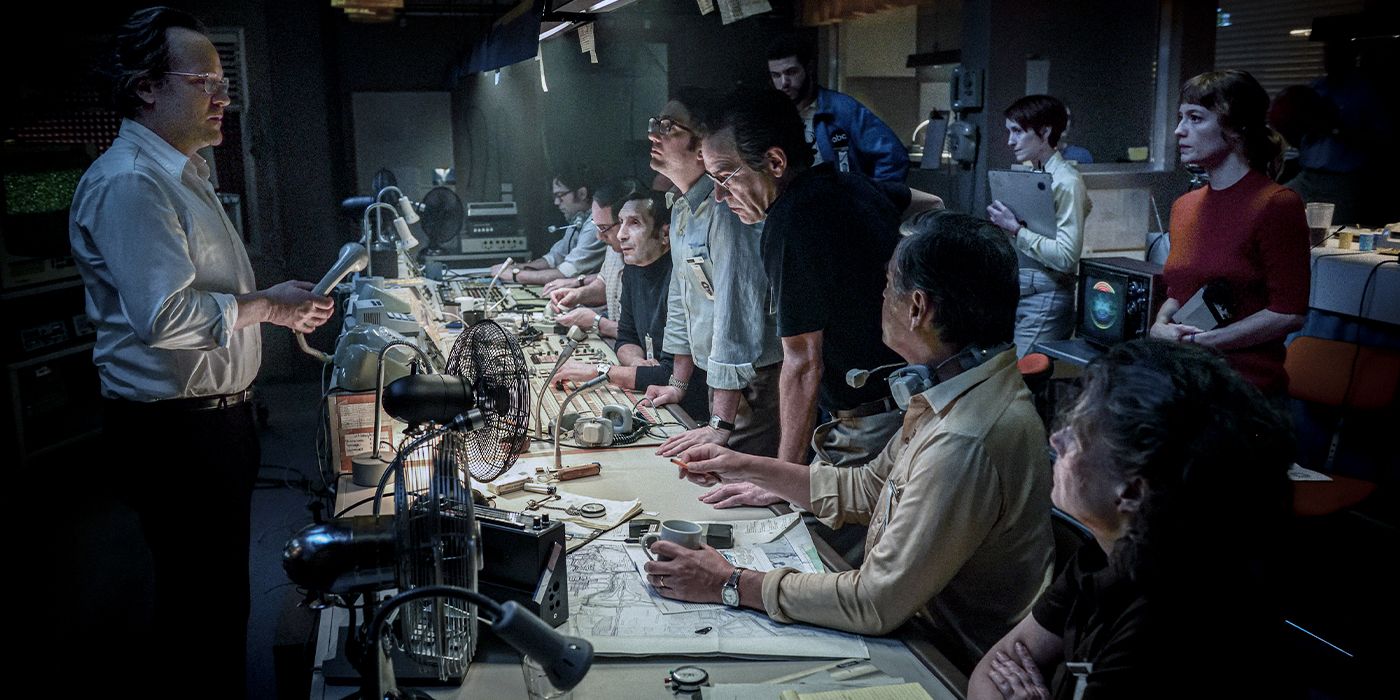 Image via Paramount Pictures
Image via Paramount Pictures
A lot of people won't remember or realize that this was the first global event. The whole world watching a tragedy unfold live on TV really changed everything. Can you talk a little bit about this moment in history and the implications of what happened during that period?
CHAPLIN: You probably know more about it, in terms of historically.
SARSGAARD: They basically had a satellite that they had to share. It wasn't like now, where we have a sky that is filled with them. They thought the best way to cover this thing was by pointing this live camera at it. That opens a whole can of worms, right? They ask some of those questions in the movie, like, "What if someone is killed on television? What if the Palestinian terrorists are watching it on their television as the German police are climbing up the outside of the building?" They seem like simple questions to us now, but they were so in it.
They were just trying to find the best way to cover this. The thing that is maybe less obvious with this issue is: does that one camera, that's a live camera pointed at the window 24/7, tell the story? Is that what the truth is? Is that the objective truth? I would say it isn't. It asks a lot of these simple questions, this movie, that we need to be asking now in an age where we have cell phones and A.I. able to change images. But we also have police cam videos, bystanders catching injustice, and people being made to be accountable for it. It's something that is very worth discussing.
One of the real strengths of the film is what people can talk about after. Really, it talks about the subjectivity of where the live camera is being cut to and also the ethical implications of, "What can we show on TV? What should we show on TV?" You see it now with car chases.
CHAPLIN: It's a really huge question. It's not one there's an answer... You can't reverse progress. You can't put the genie back in the bottle, so I do think it's asking a vital question about all those things you just listed.
SARSGAARD: Just asking the question is the thing.
CHAPLIN: That is the thing, and it’s maybe about how we consume it. To what level we discern what we consume?
How Peter Sarsgaard and Ben Chaplin Prepared for Their Roles
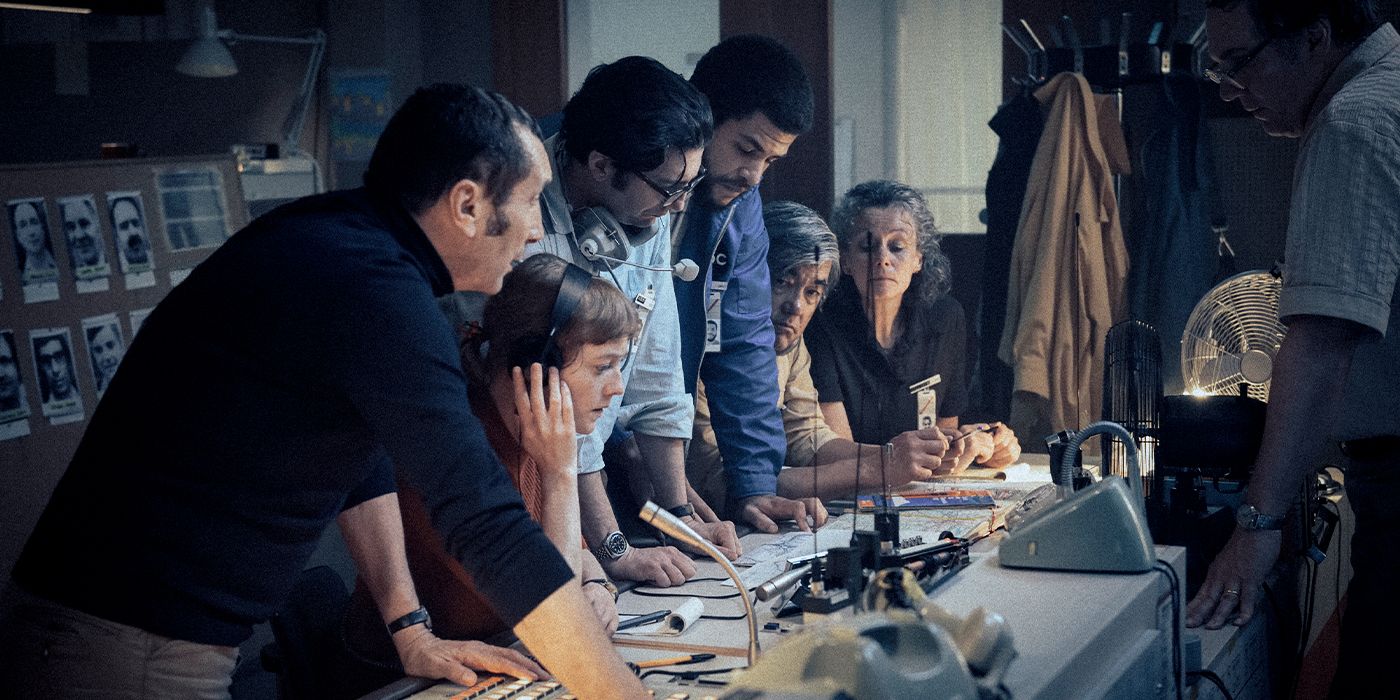 Image via Paramount Pictures
Image via Paramount Pictures
This is one of these projects where it's a movie, but it's based on very, very real events. There's a lot of material out there for both of you to pull from. The real footage and all the different people that are still alive that you can talk to.
SARSGAARD: The movie A Day in September is a fantastic documentary about this, but not from this point of view.
I would imagine before stepping on set for this, you are really giving it a lot of thought. Can you take me through your process for getting ready for this movie? I can only imagine with this much research available, it changes what you can do as an actor.
SARSGAARD: I have a friend who has covered the Olympics and also covers the NHL regularly. He's a cameraman, but he's able to show me over the years, because I'm just somebody who's always interested in stuff like that. I've always had some sort of window into it. There's a lot to read about, and by Roone Arledge. Two chapters in one of his books about it. He had such a huge life, this is really just one part of it.
The guy went on to invent what I would call the "celebrity anchor person." He really brought entertainment into news, just as he brought reality into the Olympics, where we weren't just watching two random people play; we went into their lives and the life of the person who's losing, too, and make the story. What is the story that is happening with this swim meet? For example: Just guys swimming; nobody wants to just watch that. He brought all that into his future work. It was a huge amount I could learn about him that way. I don't really worry that much about playing him in the kind of, you know, like, "I have to have freckles like he did," or something like that.
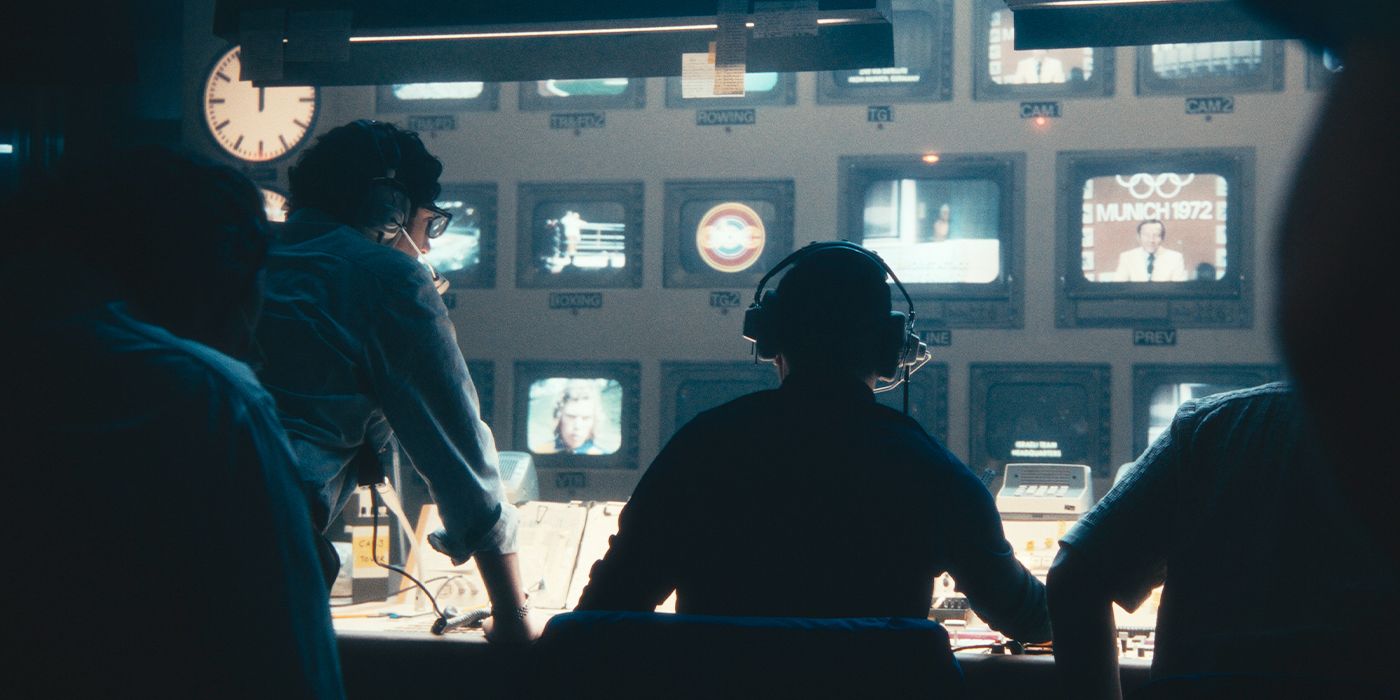 Image via Paramount Pictures
Image via Paramount Pictures
CHAPLIN: I came onto the movie later so I had limited time. There is a limited amount of material about Marvin, but there was enough. I watched a tribute to him towards the end of his life, where people are speaking about him. People speaking about someone is really helpful.
SARSGAARD: That's a great idea.
CHAPLIN: “This is your life.” That was your life.
SARSGAARD: I should have done that. You should have told me you did that. I would have. [Laughs]. I’m sure there was one for Roone.
Veteran News Anchors Admire the Detail in ‘September 5’
“Tim was passionate– you could say obsessed– with detail.”
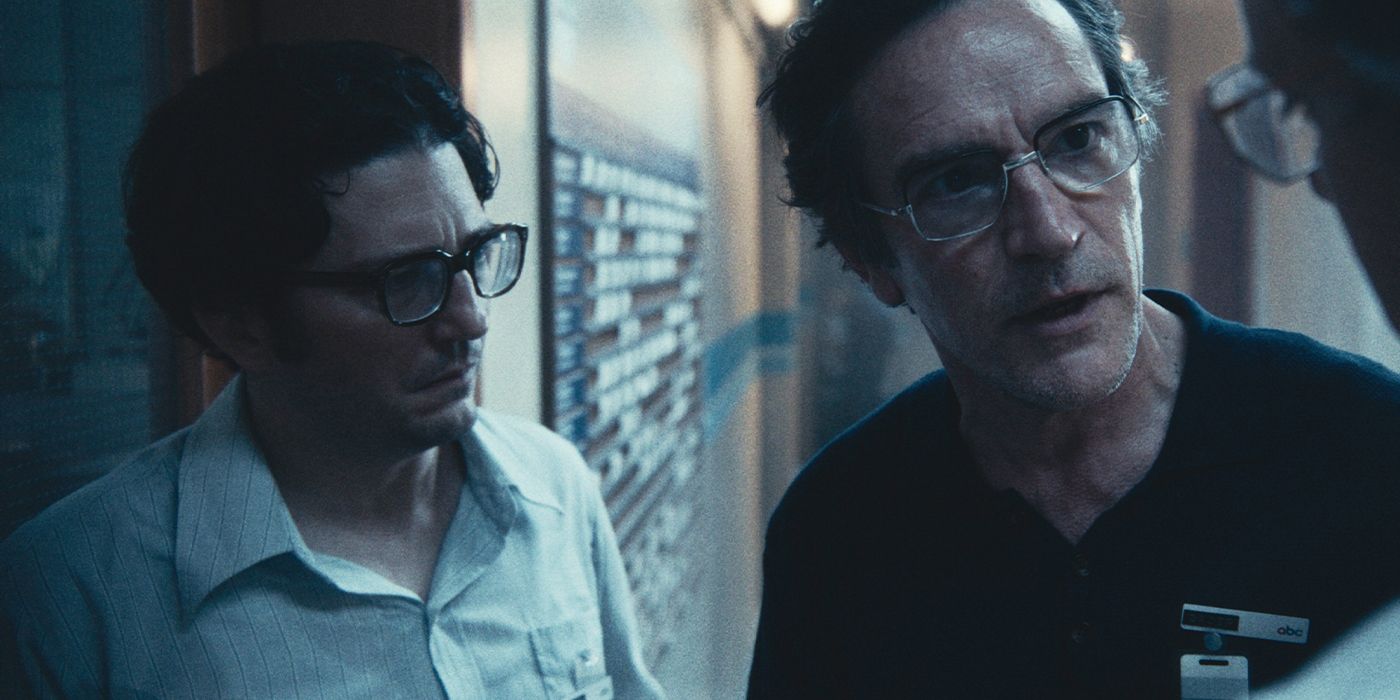 Image via Paramount Pictures
Image via Paramount Pictures
CHAPLIN: It wasn't an insightful, clever choice. It was kind of all there was. Then Bob Iger said some really interesting things about him. Then, just coincidentally, my girlfriend's first job was as an assistant to an agent for news anchors, and this was early days. This was the groundbreaking guy who came, thought of giving them agents, and turning them into celebrities in their own right. Her first boss is married to Al Berman, who is a CBS newsman/producer who worked with Dan Rather a lot, for years.
When I was about to go to Munich, I had very little time. I had a — I've never met him — 45-minute conversation with him on the phone that was so helpful. He came to the screening last night, and he found it very, very, he said it was “scarily real.” They absolutely believed the broadcast aspect of it: the timing of the calls, cues, technically, the equipment. In that respect, so much work was done for us by production design and by Tim. By Tim's — he said compulsive, Tim was passionate, you could say obsessed, with detail.
SARSGAARD: If you messed something up, there would always be some, “Well, you know what you would actually have to do is, you have to hit this first and wait, and then you can do the go thing.” Okay. He wanted it to be really, really, really, really detailed like that.
CHAPLIN: The depth. And that was noticed by, for example, Al Berman who came.
I felt like I was in the room with you guys.
September 5 is in theaters now.
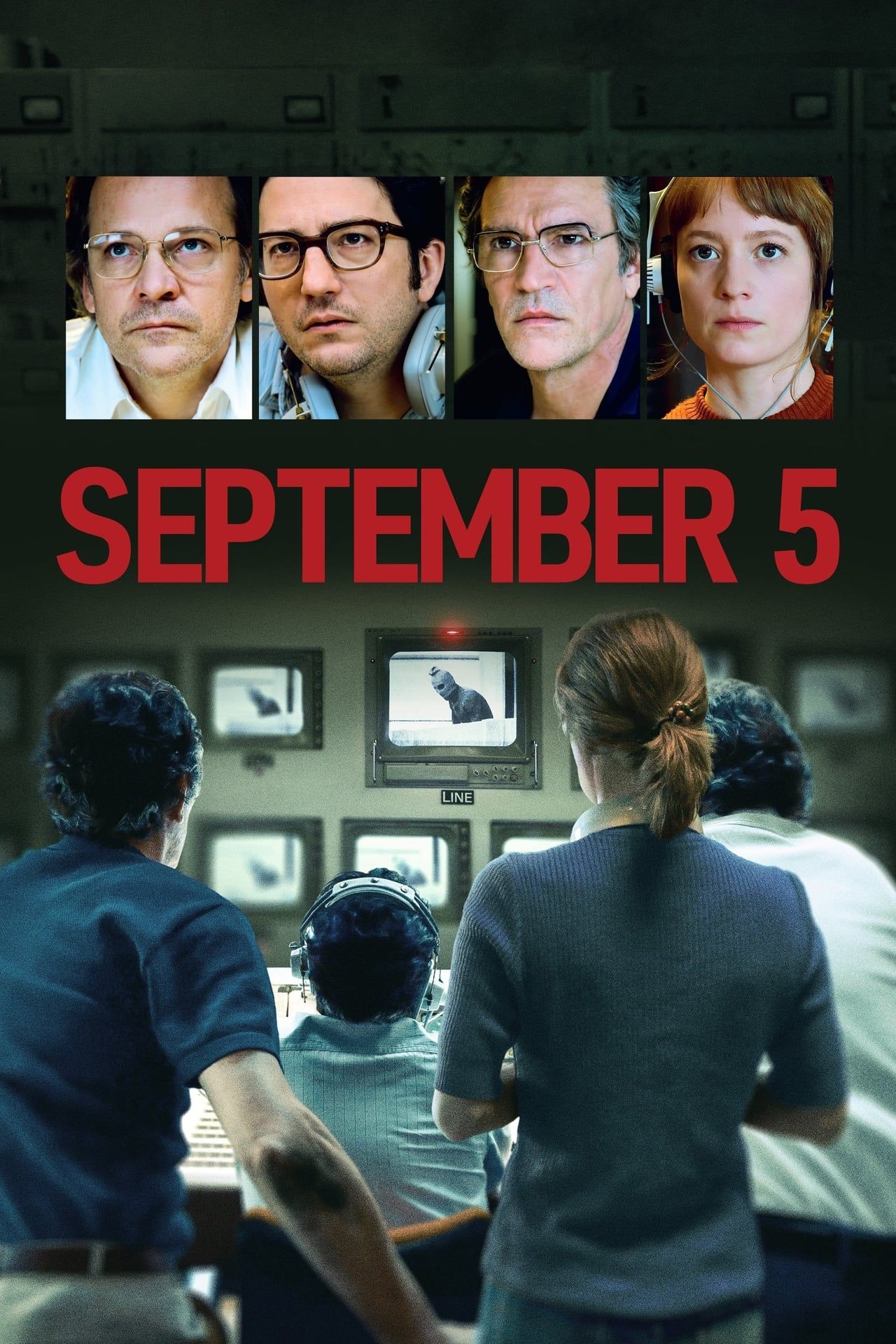
Your changes have been saved
During the 1972 Munich Olympics, an American sports broadcasting crew finds itself thrust into covering the hostage crisis involving Israeli athletes.
Release Date November 29, 2024
Director Tim Fehlbaum
Runtime 91 Minutes
Writers Tim Fehlbaum , Moritz Binder









 English (US) ·
English (US) ·